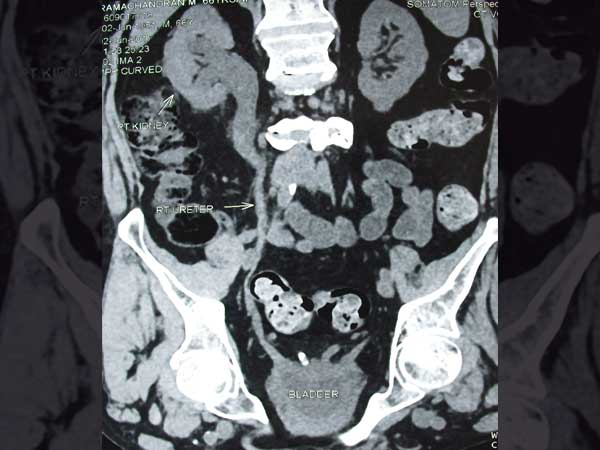- Home
- About Us
- Conditions Treated
- Treatment Offered
- Testimonials
- Gallery
- News And Events
- Urology & Andrology
- Blogs
- Contact Us
Tuberculosis is a potentially serious infectious disease that is ranked second to HIV/AIDS as the greatest killer worldwide that mainly affects the lungs. The single infectious agent that causes Tuberculosis is a bacteria known as Mycobacterium tuberculosis bacilli. According to the statistics of the World Health Organization India has the highest burden of Tuberculosis with 2.79 million cases.
WHAT IS URINARY TUBERCULOSIS
Even though Tuberculosis prominently affects the lungs. The bacteria from the lungs can spread through the blood to other parts of the body and develop lesions. The spread of the disease that affects the organs of the urinary system is known as urinary Tuberculosis. It is considered as the most serious complications of the kidney with around 1.9 million cases registered in India, out of 9.1 million global registered cases. In most cases, the disease can even spread and cause infection to the genital organs in combination with the urinary system, which is known as Urogenital Tuberculosis.

RISK FACTORS OF URINARY TUBERCULOSIS
The presence of the below-mentioned factors can increase the risk of being affected with urinary Tuberculosis.
HOW UTB AFFECTS THE KIDNEY FUNCTION
The hematogenous spread of bacteria can destroy renal tissues that lead to the formation of granuloma in glomeruli that is followed by the papilla destruction due to calyceal ulceration and involvement of the collecting system. This destruction may extend towards the urothelium and induce stricture. The kidney function can be lost due to the narrowing of the urinary drainage system. The patients can develop bladder contracture that leads to frequent urination.
SYMPTOMS
The disease manifests the below-mentioned symptoms
DIAGNOSIS
As urinary Tuberculosis is an insidious disease with nonspecific and vague symptoms, it requires a high level of suspicion and expertise to diagnose the disease manifestation. The diagnosis of the disease is based on clinical suspicion, microbiological confirmation, and radiological localization. The methods involved in diagnosis are
COMPLICATIONS
The complications involved with urinary Tuberculosis are loss of kidney function due to obstruction of urinary drainage and destruction of the renal parenchyma.
TREATMENT
A multidisciplinary approach should be followed in the treatment, which aims at the rapid reduction of actively growing bacilli in the patient and prevents the acquisition of drug resistance during the therapy. The suggested method of treatment involves chemotherapy with Anitubeculous drugs for 6-9 months. Surgery is recommended in cases that require the removal of urinary drainage blockage and increase bladder volume.
Urinary Tuberculosis can be treated effectively by proper identification of the symptoms, early diagnosis, and regular follow up of medication.
Get in touch with us
Testimonials
About Dr. N. Anandan

Dr. N. Anandan is a senior consultant at Kauvery hospital and Apollo spectra hospitals in Chennai
Read MoreTreatments
Conditions Treated
Treatments Offered